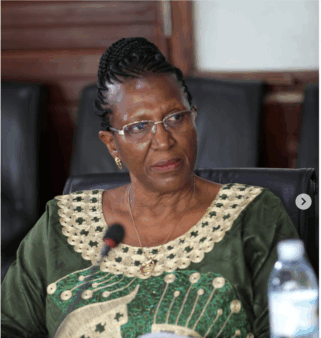A ceremony highlighting the move was held on Friday, December 16—presided over by Dr. Tumubweinee Twinemanzi, the Executive Director of Supervision at the Bank of Uganda.
Ms. Annet Nakawunde, the bank’s Managing Director said that the unveiling of a corporate branch is a strategic move to reposition the bank for its next phase of growth.
“The decision to relocate our head offices is right because what used to be our microfinance customers have since grown to be corporates and they now deserve the service of being corporates,” Ms. Nakawunde said, noting that, the previous location had turned inaccessible for the regulator, customers, and bank shareholders.
She said the move symbolizes the bank’s determination to continuously improve its offering to the customers by ensuring that its products and services are accessible in a convenient environment.
Nakawunde reported that Finance Trust Bank is one of the most profitable commercial banks in Uganda with a large network of 35 branches including one in Kalangala islands.

The bank, which has been in existence since 1984 has supported the growth of women-led businesses and now serves over 500,000 savers and 29,000 borrowers countrywide.
On her part, Dr. Evelyn Kigozi Kahiigi, the Finance Trust Bank Board chairperson said the bank has introduced an array of alternate banking channels to enhance its products and service delivery whilst offering its customers greater convenience in banking.
Dr. Kigozi also reported that the bank has since invested in technological advancements such as alternative banking channels to safeguard emerging threats.
“We have implemented systems and controls through sound management practices to safeguard against cyber threats. We will continue to strengthen our resilience in relation to combating cyber threats,” Dr. Kigozi said, also announcing that the board, is taking a keen interest in ensuring that the bank complies with the much sought-after Environmental, Social, and Governance (ESG) policies.

“Whereas we have made tremendous strides in governance, we have deliberately put in place resources to ensure that the environment is preserved as we carry on our business transactions and support the emerging social issues,” Dr. Kigozi said.
“We shall go a long way in ensuring sustainability, reducing the cost of funding, and creating an environment conducive to further business progression and sustainability,” she added.
Dr. Tumubweinee Twinemanzi, the Executive Director of Supervision at the Bank of Uganda said the change in the location was a bold move and commended the bank for taking advantage of the enabling environment and reforms created by the central bank to become one of the best commercial banks.
“I want to commend the management and the board for taking this institution from where you did to where it is today. It’s a demonstration of a certain level of fortitude that is rarely seen these days,” Dr. Twinemanzi said. But he warned that the bigger journey is ahead.
Dr. Twinemanzi also urged the bank to pay close attention to the risks associated with relying on technology to provide services.
About the Finance Trust Bank
Finance Trust Bank (FTB) was founded in 1984 as Uganda Women’s Finance Trust Limited. The objective was to provide financial services to low-income people in Uganda, especially women.
Sixty per cent (60%) of the bank’s customers are women. Subsequently, the institution rebranded to Uganda Finance Trust Limited, a Tier III financial institution, recognized as a microfinance deposit-taking institution under the supervision of the Bank of Uganda. On 11 November 2013, the Bank of Uganda granted the bank a full commercial banking license the institution then rebranded to its current name – Finance Trust Bank (FTB).
Finance Trust Bank (FTB) has a large branch network of 35 branches (including Kalangala) serving over 500,000 customers countrywide. The bank currently serves over 500,000 savers and 29,000 borrowers. Their core clients are in the lower pyramid of the economic strata and are inclined to serve women who are emerging rural entrepreneurs and enterprising urbanites as individuals or saving groups.


 Airtel Africa and SpaceX Announce Strategic Partnership to Launch Starlink Direct to Cell Connectivity Across Africa
Airtel Africa and SpaceX Announce Strategic Partnership to Launch Starlink Direct to Cell Connectivity Across Africa


